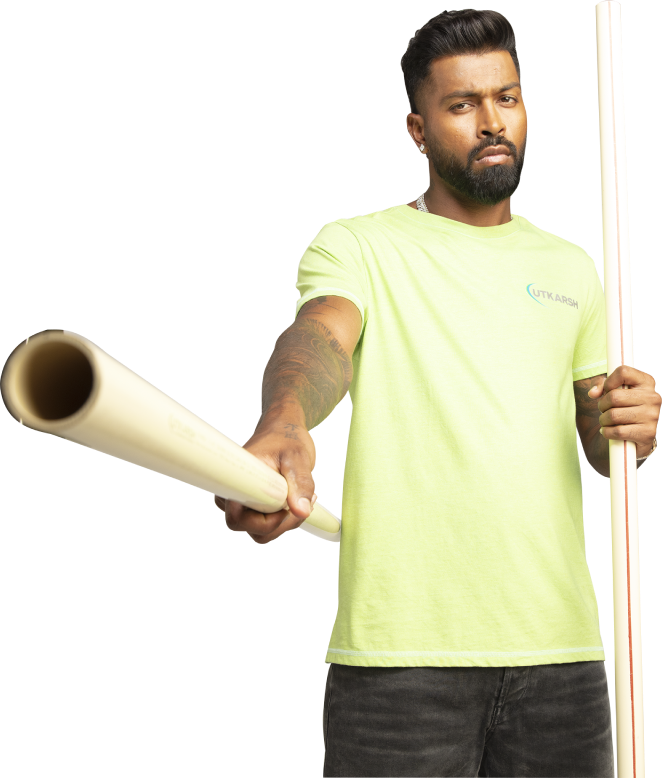Understanding PVC pipe pricing: What factors influence the cost?

Polyvinyl chloride (PVC) pipes present a versatile and cost-effective option for numerous applications, including plumbing, drainage, and irrigation. These pipes are not only durable and corrosion-resistant but also lightweight. Available in a wide range of sizes, they meet the needs of various projects, from residential to commercial. Although PVC offers an affordable option compared to metal pipes, the final PVC pipe price can vary due to several factors. Understanding these factors helps you make informed purchasing decisions.
1. Size and Length
- Diameter: The diameter or thickness across the pipe is a significant cost factor. Larger diameter pipes require more material and are priced higher.
- Length: Prices are typically quoted per unit of length, such as per foot. Longer pipes may offer slight cost savings per unit length. However, longer lengths might require higher transportation costs.
- Pressure Rating: PVC pipes come in various pressure ratings, categorised by schedules (e.g., Schedule 40, 80). The schedule indicates the pipe's ability to withstand internal pressure. Higher pressure ratings require thicker walls, which can lead to higher costs. Choose the schedule appropriate for your application's pressure requirements. Avoid overspending on a higher schedule than needed.
2. Material Quality
The quality of the PVC resin used in manufacturing impacts strength, durability, and chemical resistance. Pipes made with a higher percentage of virgin resin, which is new and unprocessed plastic, generally offer better performance. However, they come with a higher price tag compared to those with recycled content. Consider the specific demands of your project when choosing between virgin and recycled material products.
3. Manufacturer
Different manufacturers have varying pricing strategies. Well-established businesses with a reputation for quality may charge a higher price. However, their products might offer greater reliability and consistency in specifications.
4. Location and Distribution
If the retailer is located close to the manufacturing plant where the PVC pipes are produced, transportation costs will be lower. This is because shorter distances reduce fuel and labour expenses associated with shipping. If the retailer is far from the manufacturing facility, transportation costs will increase.
5. Application-specific Factors
- Temperature Resistance: Some applications require pipes that can withstand high or low temperatures. Pipes designed for extreme temperatures might cost more due to specialised materials and manufacturing processes.
- Chemical Resistance: Certain industrial applications need pipes resistant to specific chemicals. PVC pipes with enhanced chemical resistance properties might be priced higher than standard pipes.
- UV Resistance: If the pipes will be exposed to sunlight, UV-resistant pipes are necessary to prevent degradation. These pipes are often more expensive due to added UV inhibitors.
6. Market Conditions
- Raw Material Costs: The cost of raw PVC resin can fluctuate based on supply and demand, impacting the final price of the pipes.
- Labour Costs: The labour costs involved in manufacturing and transporting the pipes can vary, affecting the overall price.
- Economic Factors: Inflation, tariffs, and other economic factors can influence the cost of PVC pipes.
Buying Tips
- Bulk Purchasing: Buying in bulk can often lead to discounts, reducing the per-unit cost.
- Seasonal Discounts: Some suppliers offer discounts during certain times of the year. Look for seasonal sales to save on costs.
- Comparative Shopping: Don’t settle on the first price you find. Compare prices from different suppliers to ensure you get the best deal.
- Negotiation: Sometimes, suppliers are open to negotiating prices, especially for large orders. Don’t hesitate to ask for a better deal.
Looking for PVC pipes?
Explore our collection of pipes. We offer a wide range of pipes, including PVC, uPVC, CPVC and more. We have a robust network of experienced installers and contractors for pipe-laying projects. We are the first pipe manufacturer in eastern India to produce both GI and PVC pipes under one roof, thereby offering customers integrated solutions. With about 40 years of experience, the company serves domestic, agricultural, industrial, and infrastructural sectors with steel and PVC pipes. Our production capacity is 64,000 MT per year for polymer pipes and 144,000 MT per year for steel pipes.
You can also explore our CPVC pipes and fittings. These are suitable for various applications, such as domestic plumbing, industrial plumbing, lines carrying chemicals for industries and more. The CPVC fittings range includes products, such as reducing tee, cross tee, equal tee and more. If you want to know more about CPVC pipe prices, contact us.
```
















